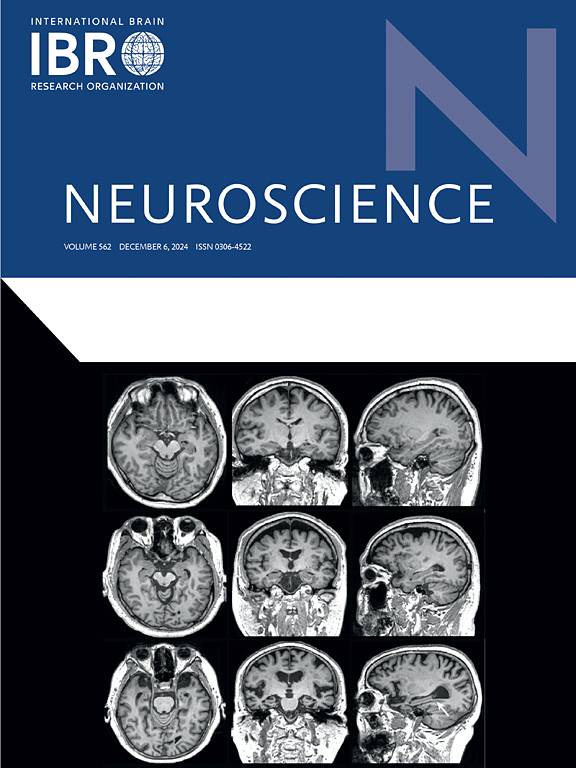Expressive suppression moderates the relationship between brain volume and mental health
IF 2.8
3区 医学
Q2 NEUROSCIENCES
引用次数: 0
Abstract
Emotion regulation plays a critical role in both physiological and psychological well-being. While previous structural neuroimaging studies have examined the relationship between emotion regulation strategies and brain volume in neurotypical individuals, the potential moderating role of these strategies in the association between brain volume and mental health variables remains largely unexplored. This study had three main objectives: (1) to employ an unsupervised, data-driven approach to cluster participants based on their use of cognitive reappraisal (CR) and expressive suppression (ES), alongside their scores on anxiety, depression, and perceived stress; (2) to compare the brain volume of regions of interest associated with emotion regulation across these groups; and (3) to investigate whether the frequent use of CR or ES moderates the relationship between brain volume and mental health outcomes. Fifty-three healthy adult participants completed self-report measures assessing their use of CR and ES, as well as anxiety, depression, and stress levels. High-resolution T1-weighted structural MRI scans were obtained to calculate brain volume. Unsupervised clustering identified two distinct groups based on emotion regulation strategy use and mental health scores. Cluster 1 showing greater volume in the left rectus gyrus compared to Cluster 2. Furthermore, moderation analyses revealed that frequent use of ES moderated the positive relationship between mental health symptoms and brain volume in the right superior frontal gyrus, left rectus gyrus, right amygdala, and bilateral insula. These findings underscore the importance of emotion regulation strategies in shaping mental health outcomes and their potential influence on brain structure in neurotypical individuals.
表达抑制调节脑容量与心理健康之间的关系。
情绪调节对生理和心理健康都起着至关重要的作用。虽然之前的结构神经成像研究已经检查了神经正常个体的情绪调节策略和脑容量之间的关系,但这些策略在脑容量和心理健康变量之间的关联中的潜在调节作用仍未被探索。本研究有三个主要目标:(1)采用无监督、数据驱动的方法,根据参与者的认知重评(CR)和表达抑制(ES)的使用情况,以及他们在焦虑、抑郁和感知压力方面的得分,对参与者进行聚类;(2)比较各组与情绪调节相关的感兴趣区域的脑容量;(3)探讨频繁使用CR或ES是否调节脑容量与心理健康结果的关系。53名健康成人参与者完成了自我报告测量,评估了他们对CR和ES的使用情况,以及焦虑、抑郁和压力水平。获得高分辨率t1加权结构MRI扫描以计算脑容量。无监督聚类根据情绪调节策略的使用和心理健康得分确定了两个不同的群体。簇1显示左侧回直肌体积比簇2大。此外,适度分析显示,频繁使用ES可调节心理健康症状与右侧额上回、左侧直回、右侧杏仁核和双侧脑岛脑容量之间的正相关关系。这些发现强调了情绪调节策略在塑造心理健康结果中的重要性,以及它们对神经正常个体大脑结构的潜在影响。
本文章由计算机程序翻译,如有差异,请以英文原文为准。
求助全文
约1分钟内获得全文
求助全文
来源期刊

Neuroscience
医学-神经科学
CiteScore
6.20
自引率
0.00%
发文量
394
审稿时长
52 days
期刊介绍:
Neuroscience publishes papers describing the results of original research on any aspect of the scientific study of the nervous system. Any paper, however short, will be considered for publication provided that it reports significant, new and carefully confirmed findings with full experimental details.
 求助内容:
求助内容: 应助结果提醒方式:
应助结果提醒方式:


